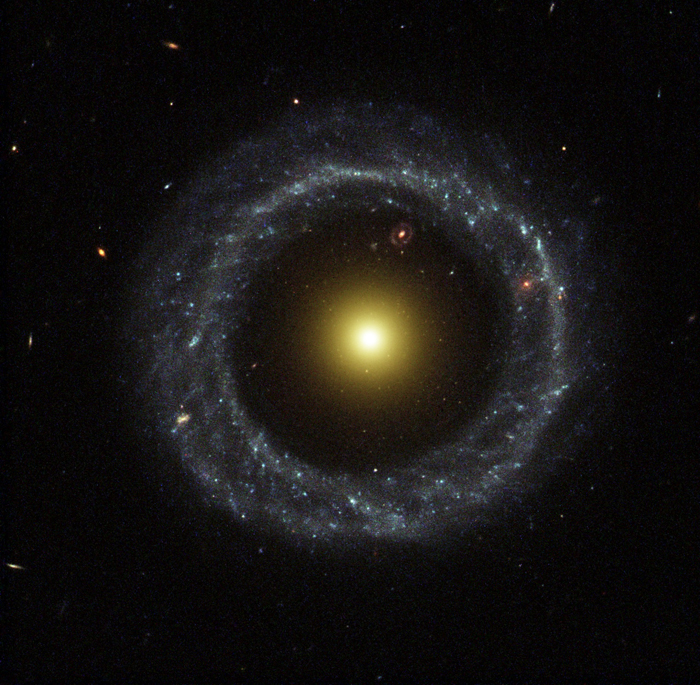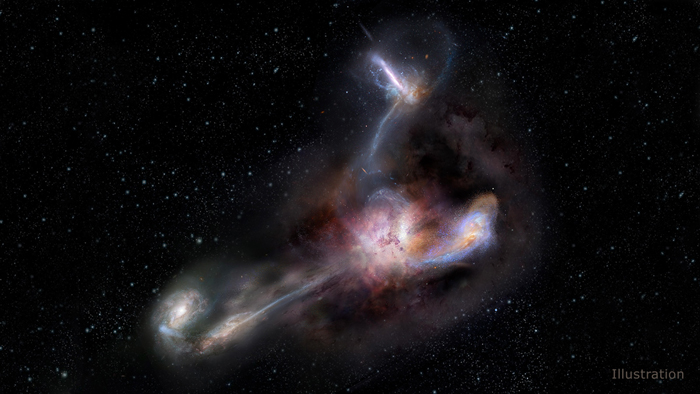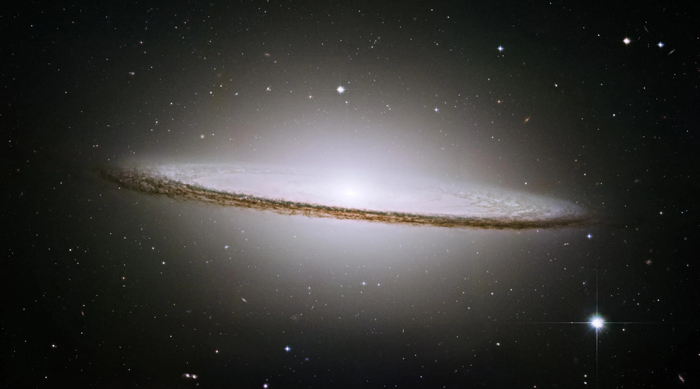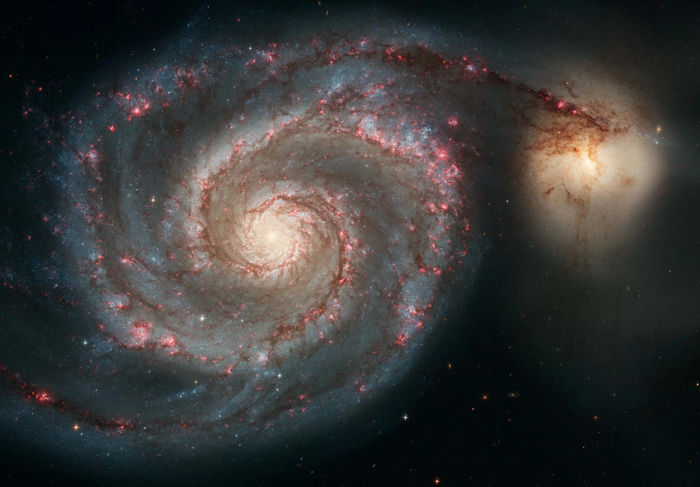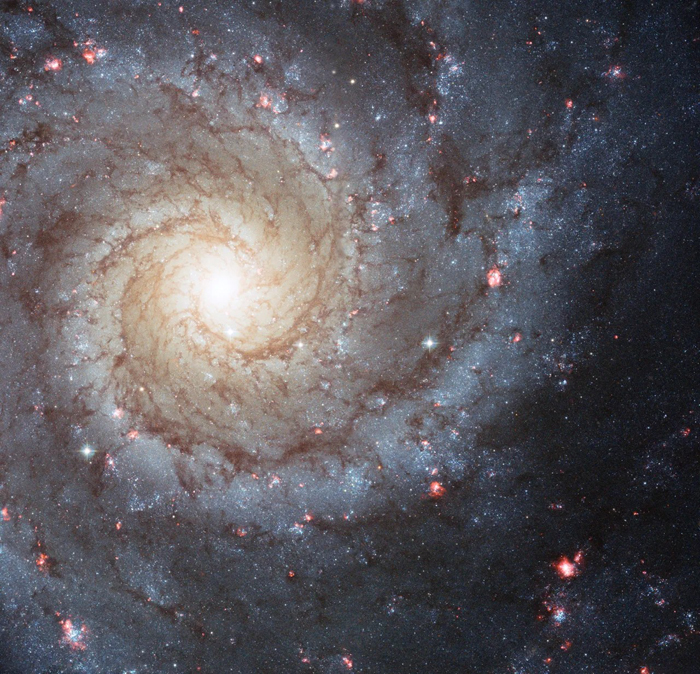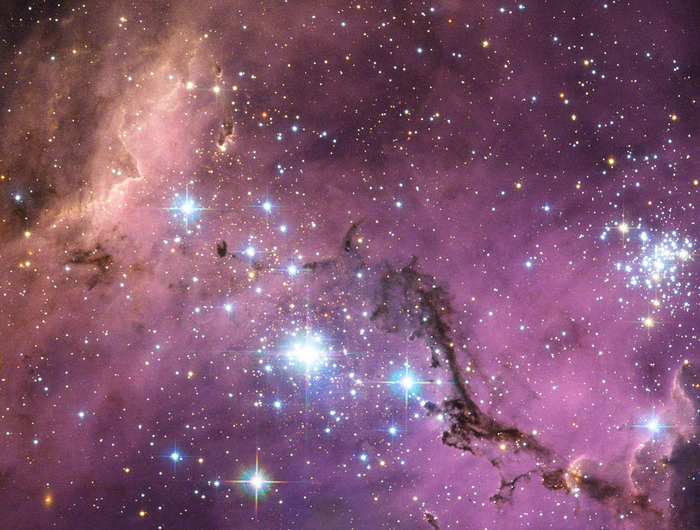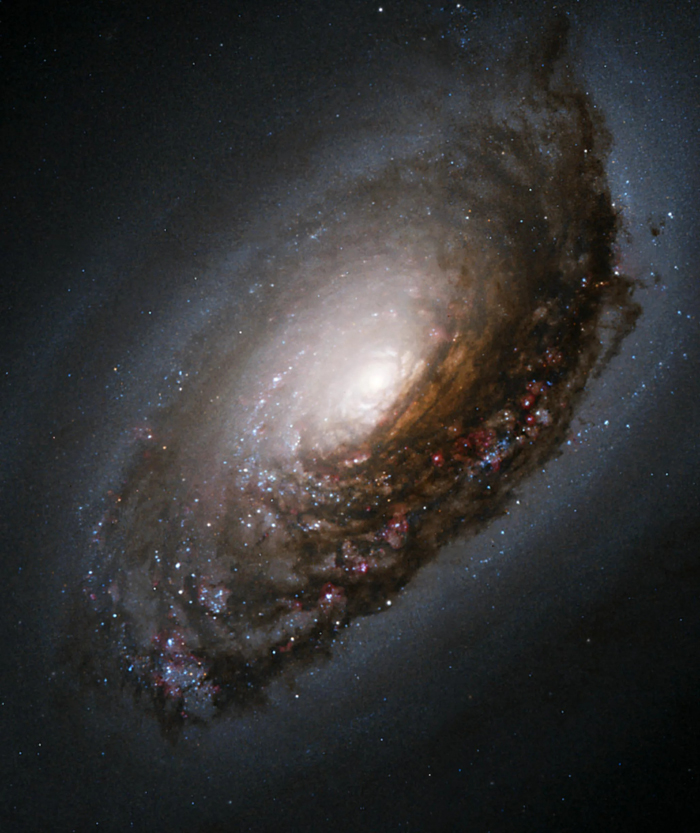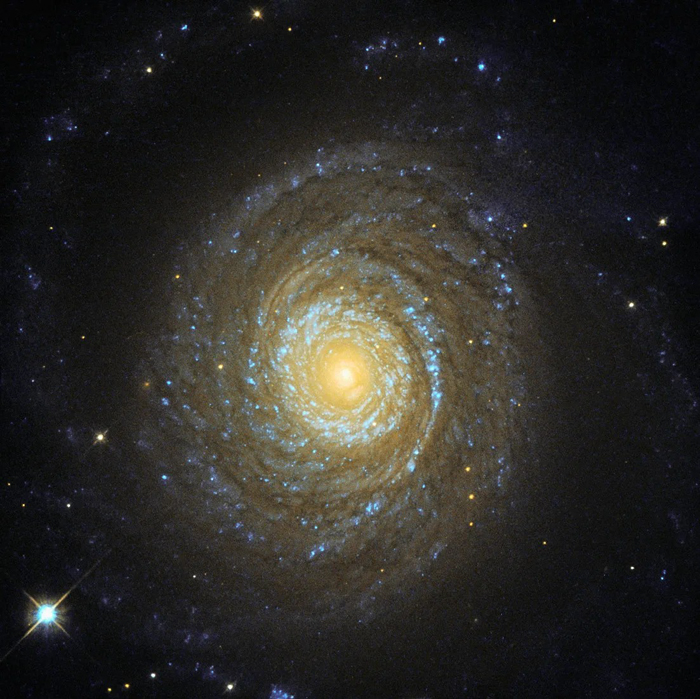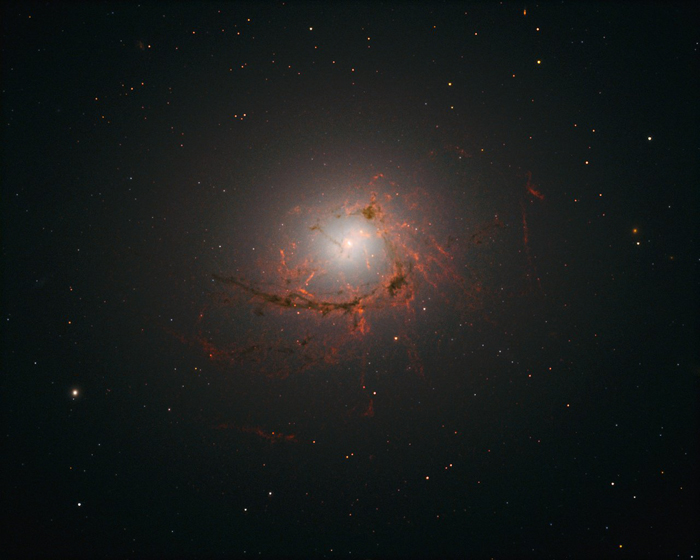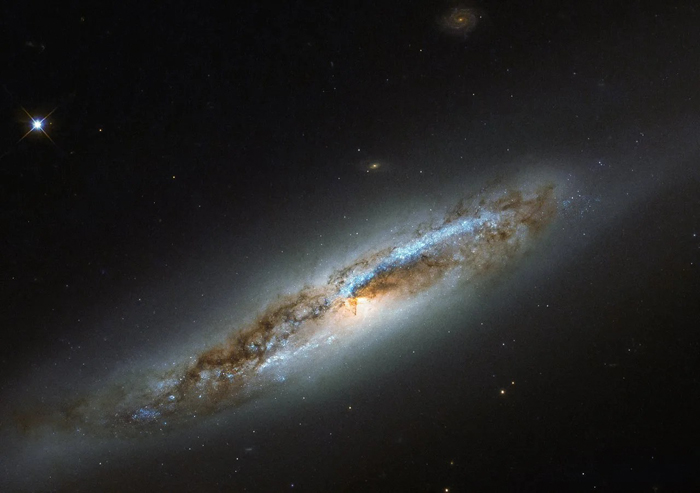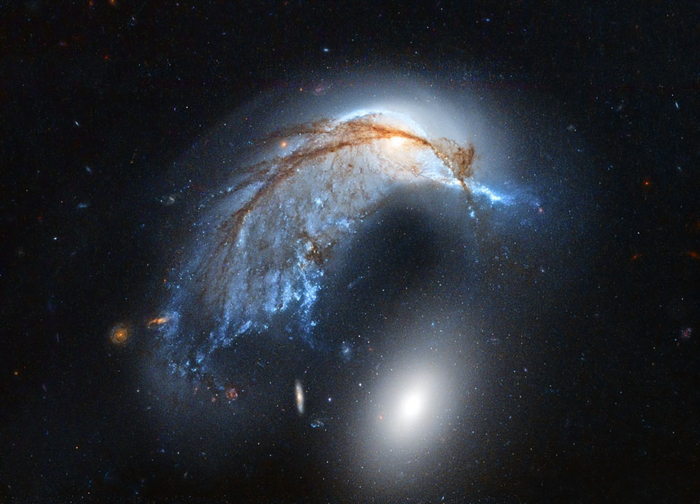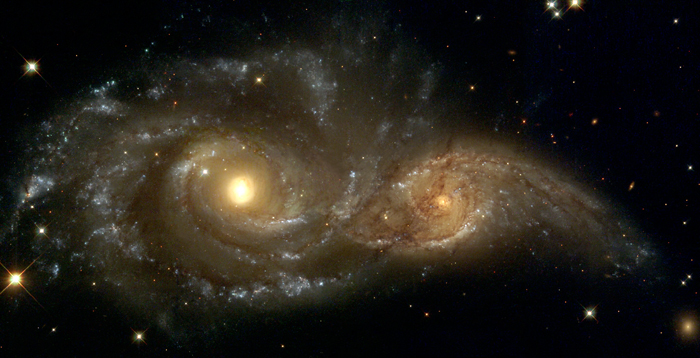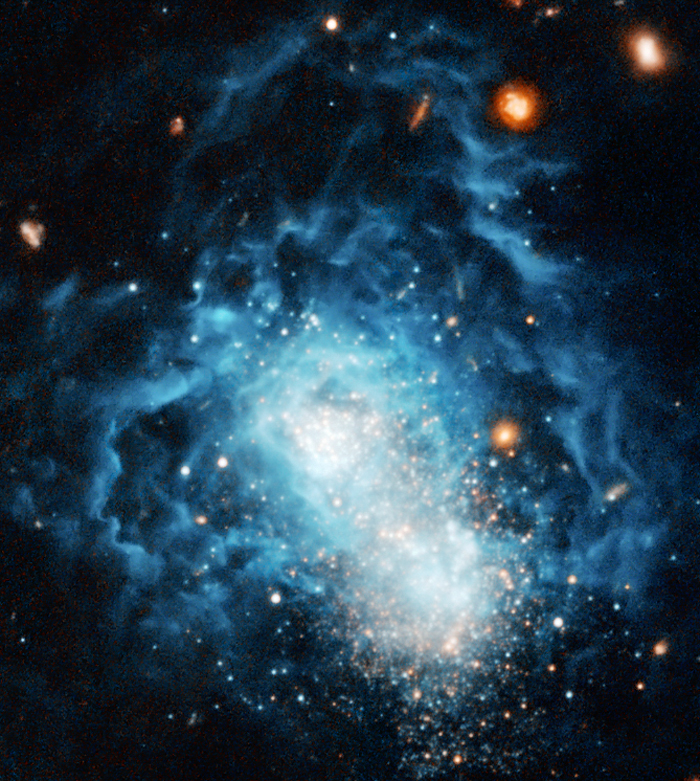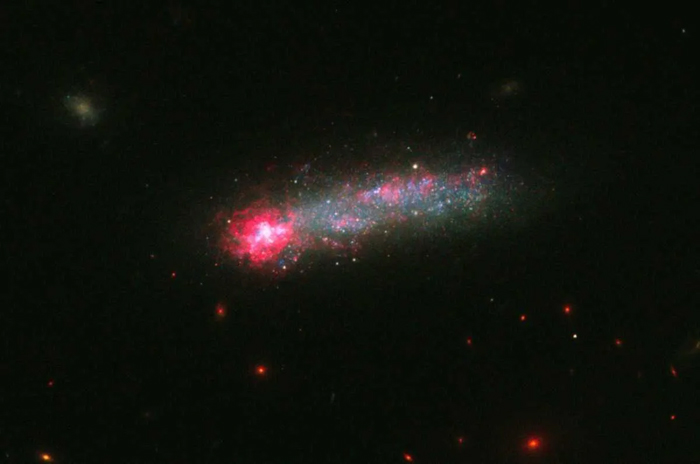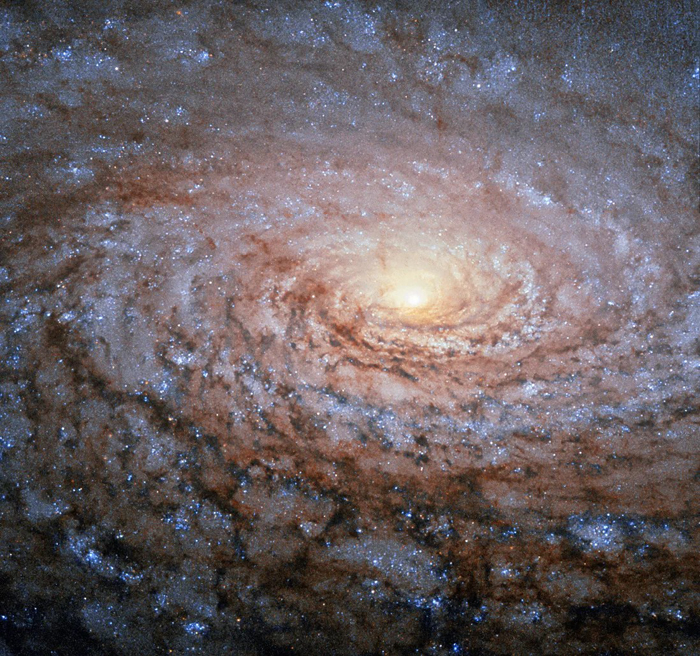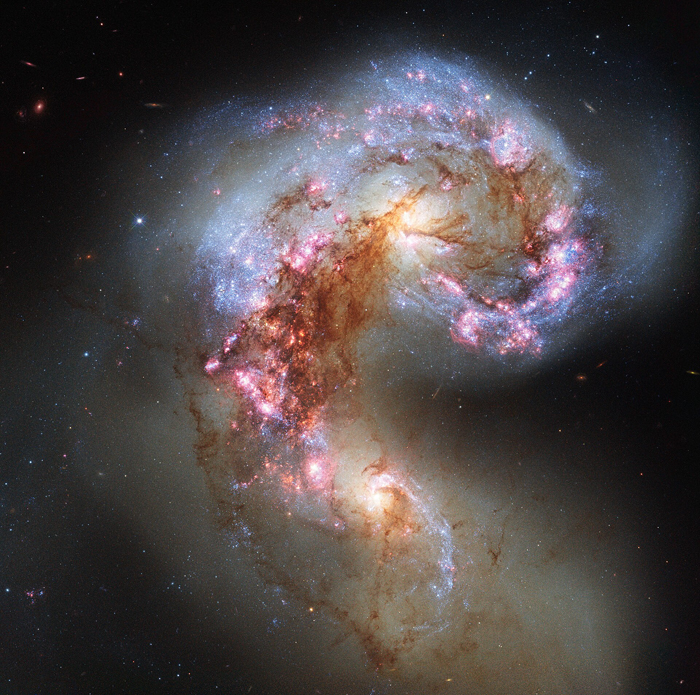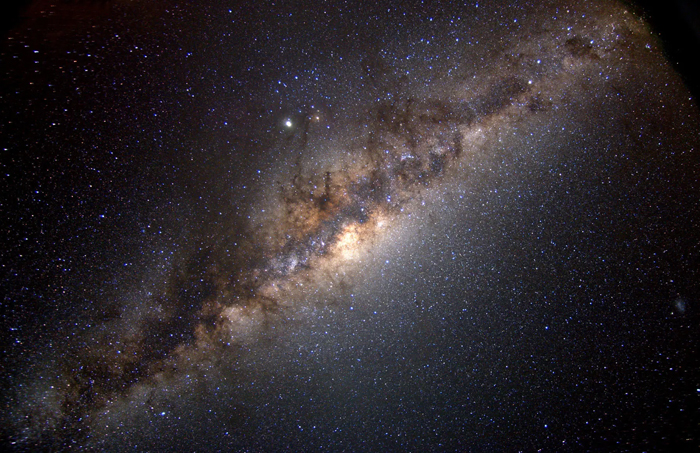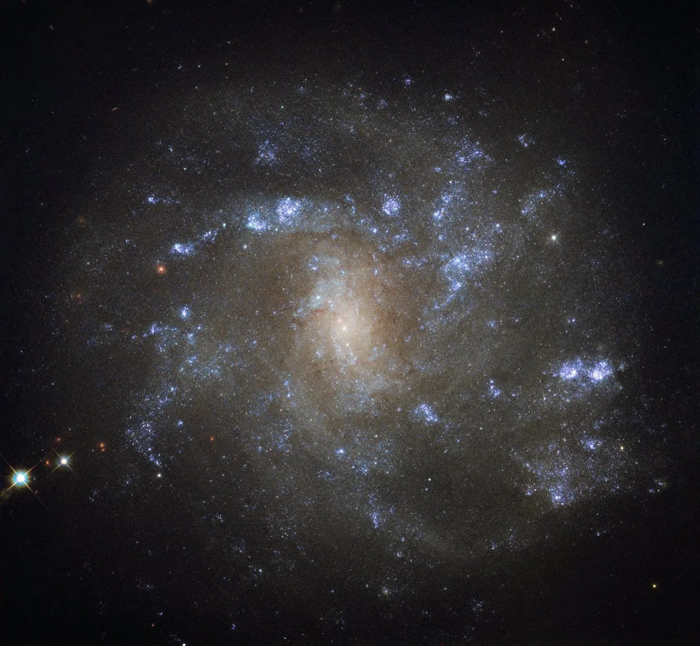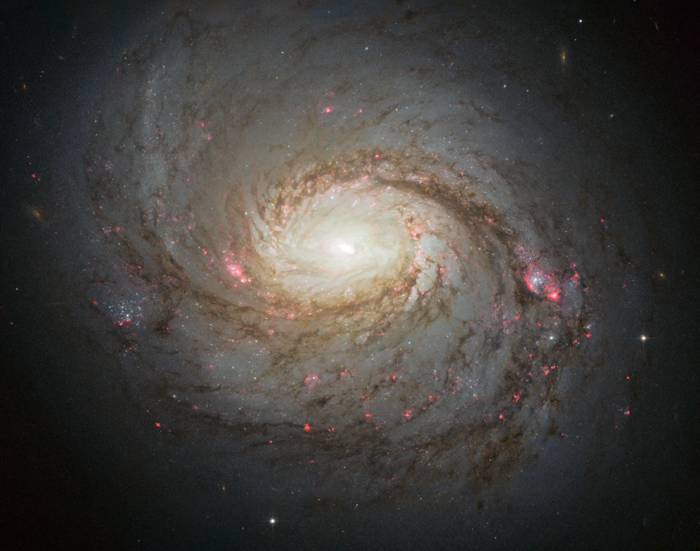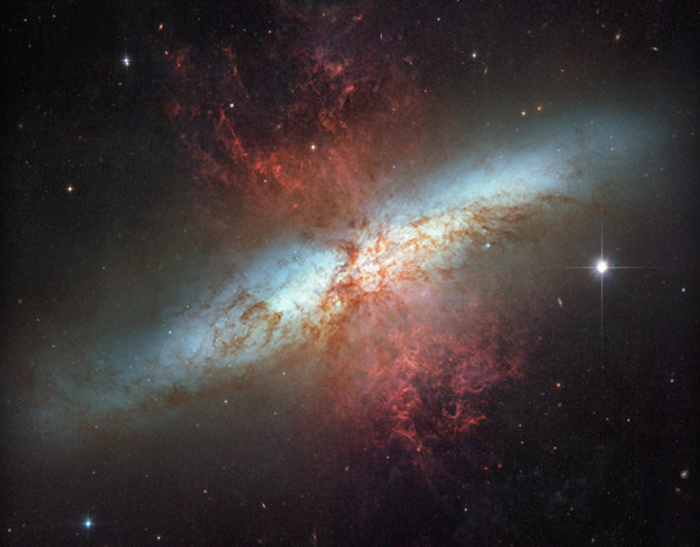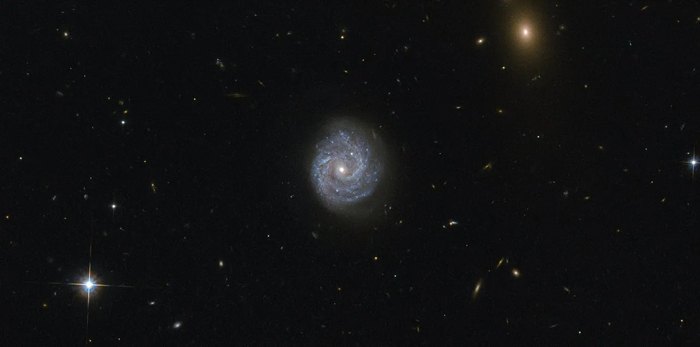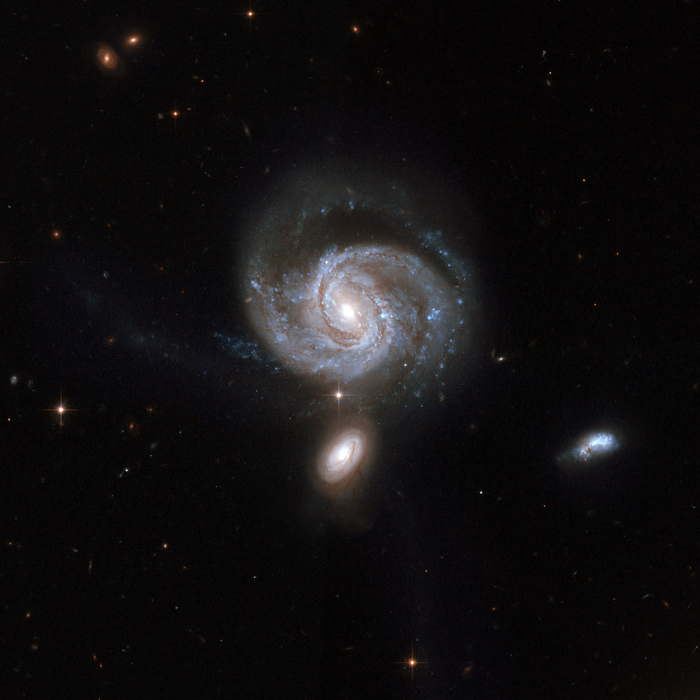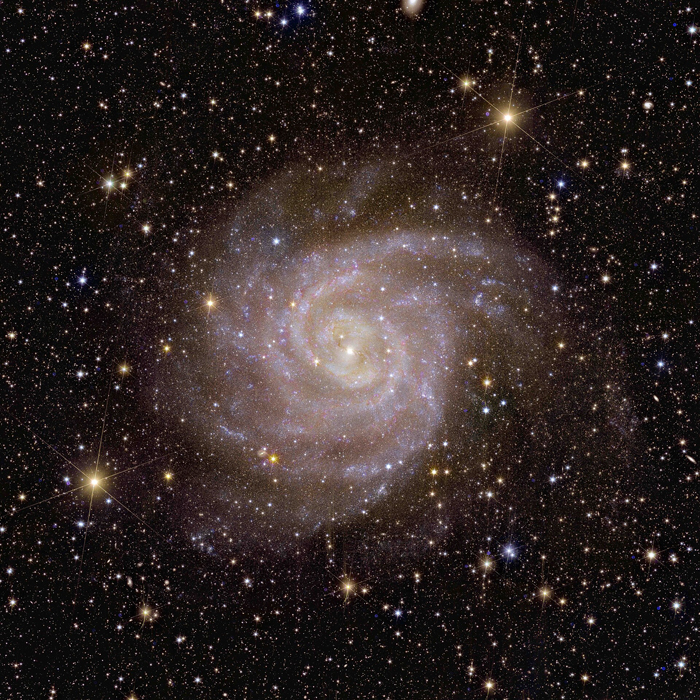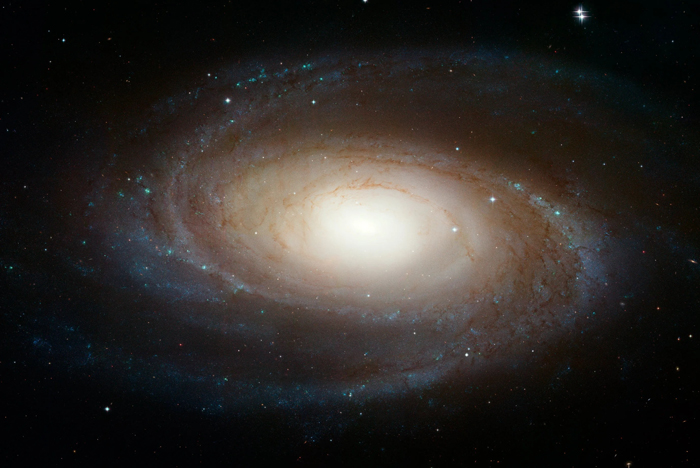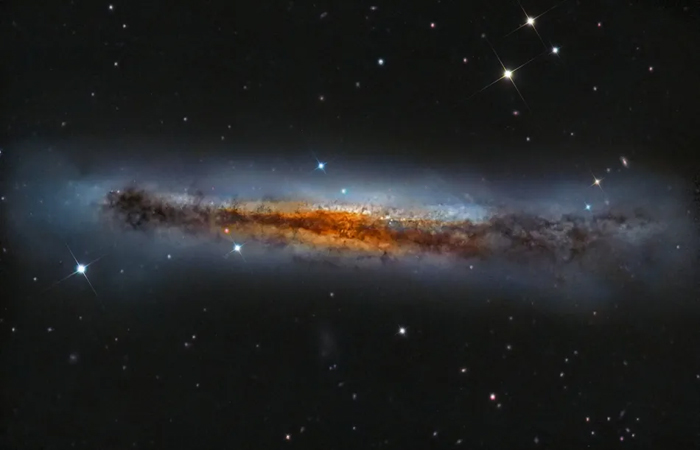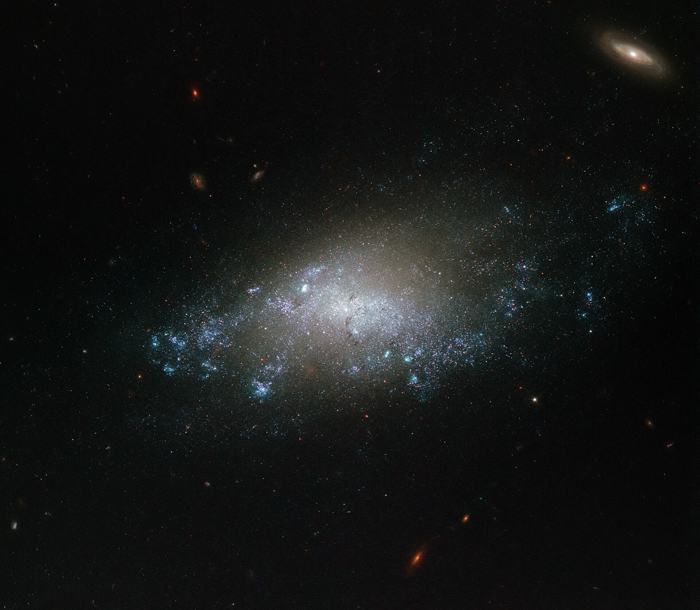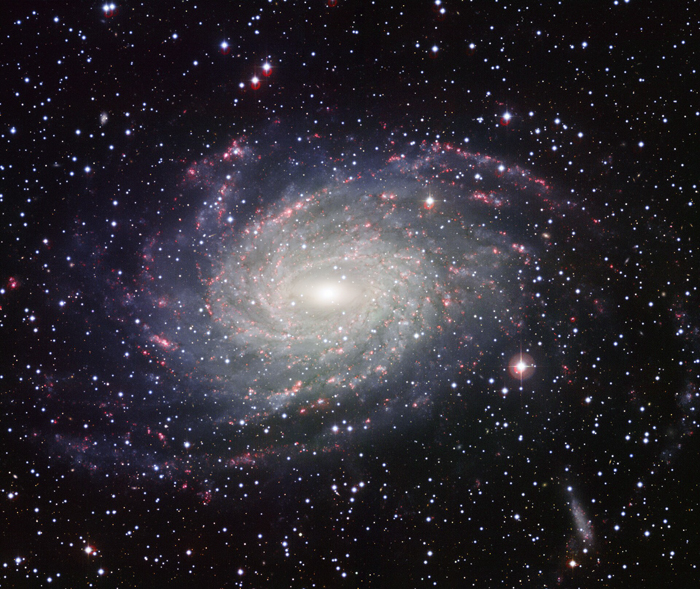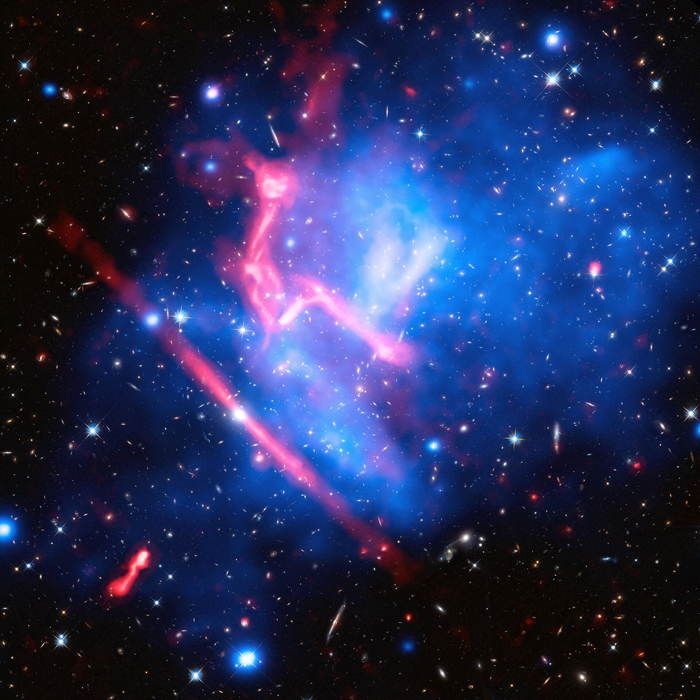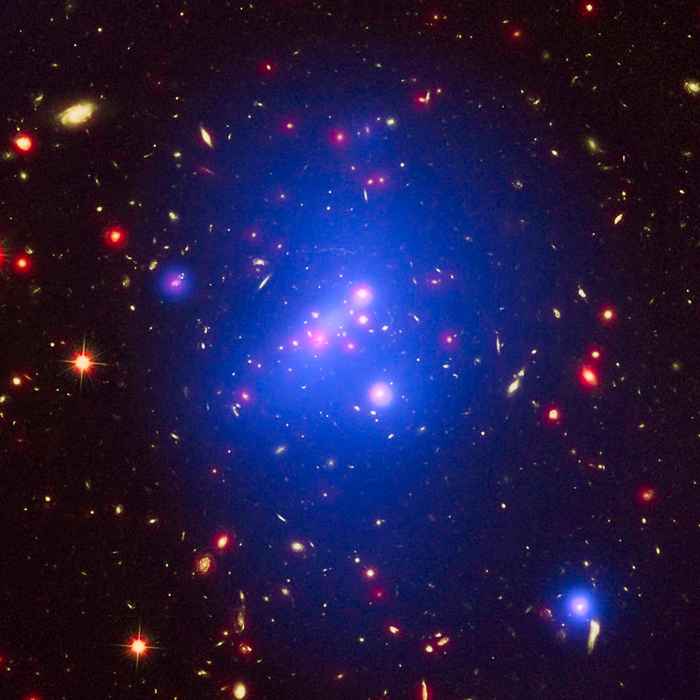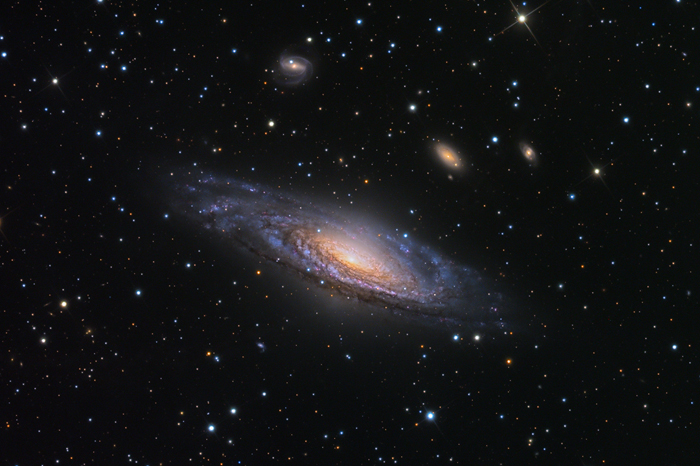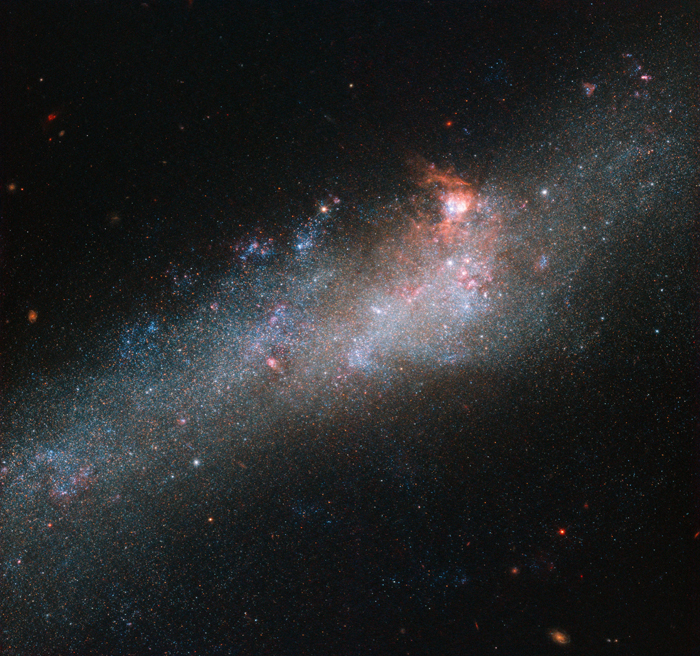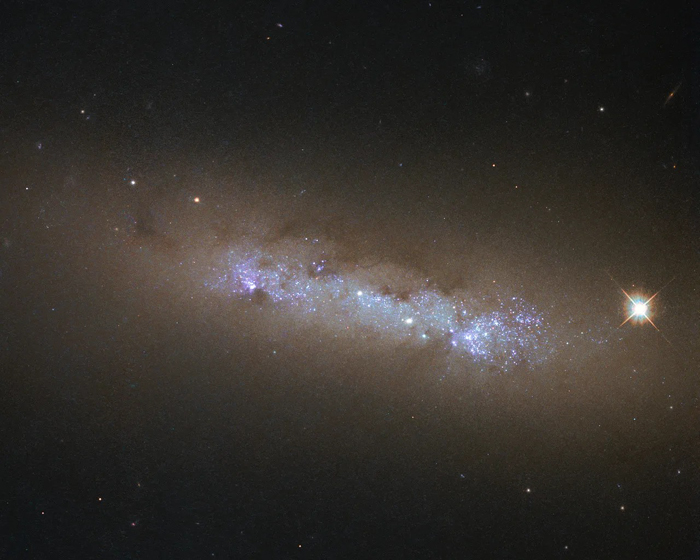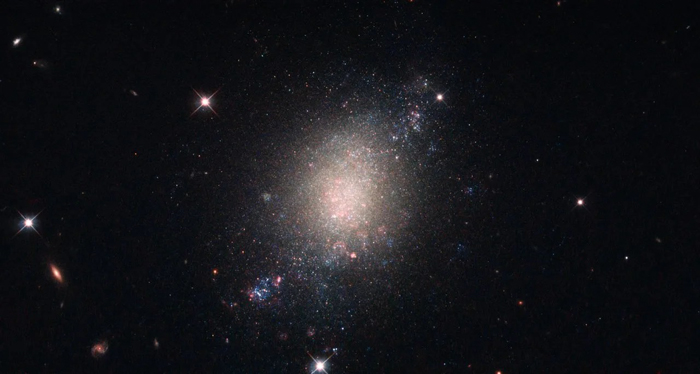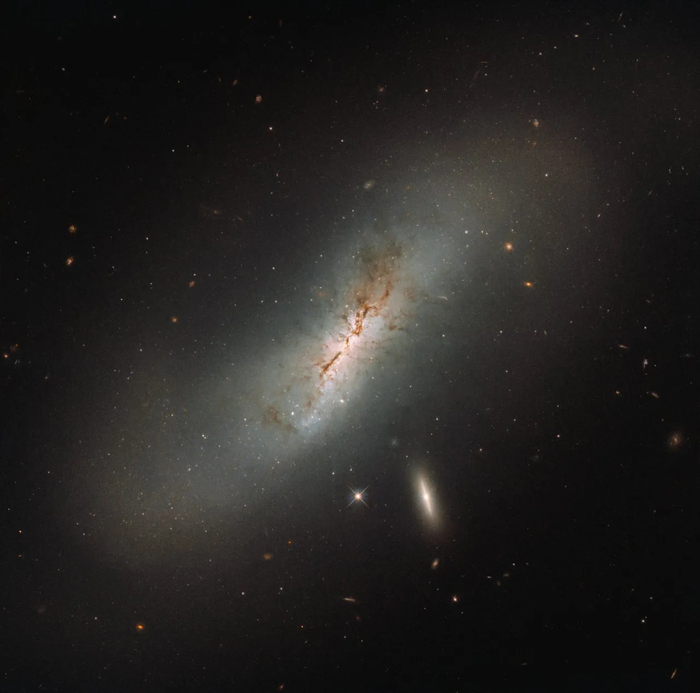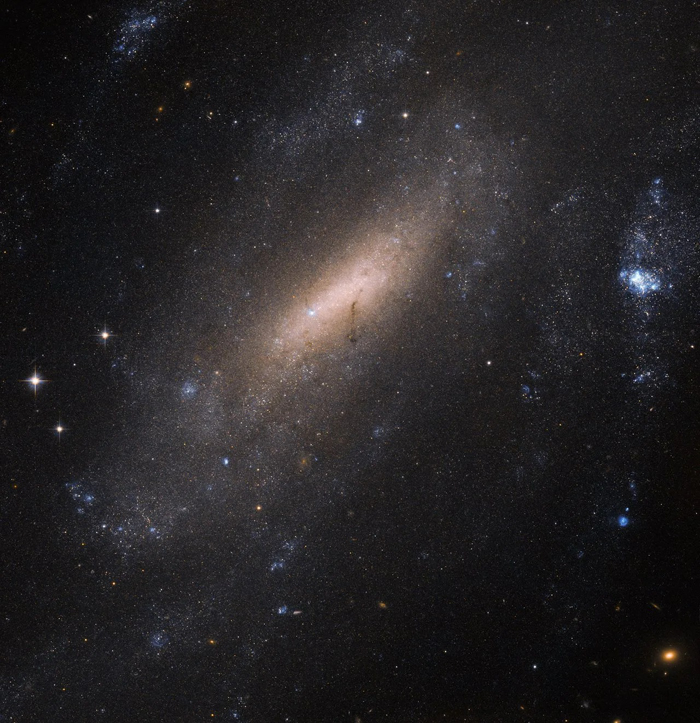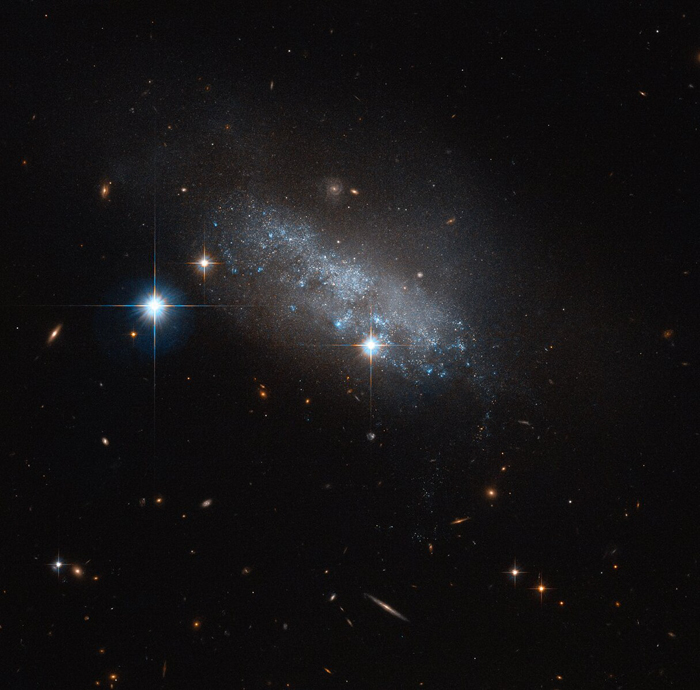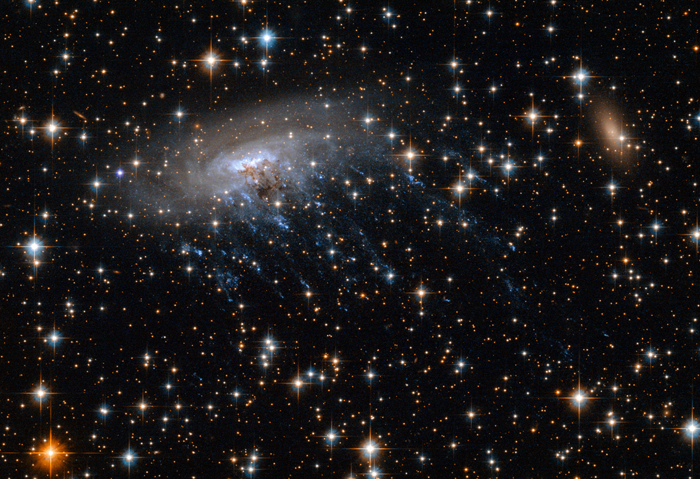The Hubble Space Telescope launched into low Earth orbit in 1990s unveiled vast cosmic islands in the endless wild ocean of the universe, and here are some of the most beautiful ones. Galaxies consist of stars, planets, and vast clouds of gas and dust, all held together by gravity. The largest one contain trillions of stars and could be more than a million light-years across. The smallest may contain a few thousand stars and span just a few hundred light-years. Most large galaxies have supermassive black holes at their centers, some with billions of times the Sun’s mass. It all changed in the 1920s when the astronomer Edwin Hubble showed that the Andromeda “nebula” was a galaxy in its own right. Despite the immense distance, Andromeda is the closest large galaxy to our Milky Way, and it’s bright enough in the night sky that it’s visible to the naked eye in the Northern Hemisphere. Interestingly enough, more than two-thirds of all observed galaxies are spiral galaxies that have a flat, spinning disk with a central bulge surrounded by spiral arms. Elliptical galaxies contain many older stars, but little dust and other interstellar matter. Their stars orbit the galactic center but they do so in more random directions. The universe’s largest known one may contain up to a trillion stars and span two million light-years across. Lenticular galaxies, such as the funny Sombrero Galaxy, are between elliptical and spiral galaxies. They have a thin, rotating disk of stars and a central bulge, but they don’t have spiral arms. Like elliptical galaxies, they have little dust and interstellar matter, and they seem to form more often in densely populated regions of space. The rest of the galaxies are called Irregular - such as the Large and Small Magellanic Clouds. They appear misshapen and lack a distinct form, very often because they are within the gravitational influence of other galaxies close by. They are full of gas and dust, which makes them great nurseries for forming new stars. Sometimes, galaxies collide. Astronomers think the Milky Way and its galactic neighbor Andromeda are set to collide in another 4.5 billion years. If colliding galaxies don’t have enough momentum to move past each other, they can merge to form a single larger galaxy. Then it can look very different from the two that created it. For example, if a spiral and elliptical merge, the result could be an irregular galaxy. Some larger galaxies can also eat up the smaller ones through proximity and gravitational interactions, pulling material away to fuel their own growth. Galaxies, galaxy groups and clusters, superclusters, and galactic walls are arranged in twisting, threadlike structures called the cosmic web. The web forms as the gravitational attraction of the universe’s matter draws larger and larger objects together leading to concentrations of galaxies with voids of space in between, as if the galaxies were resting on empty bubbles. In the places where those concentrations intersect, they form larger structures like clusters and walls. The cosmic web forms a sort of scaffolding that cradles everything that exists within the universe. Follow Bored Panda on Google News! Follow us on Flipboard.com/@boredpanda! Please use high-res photos without watermarks Ooops! Your image is too large, maximum file size is 8 MB.
